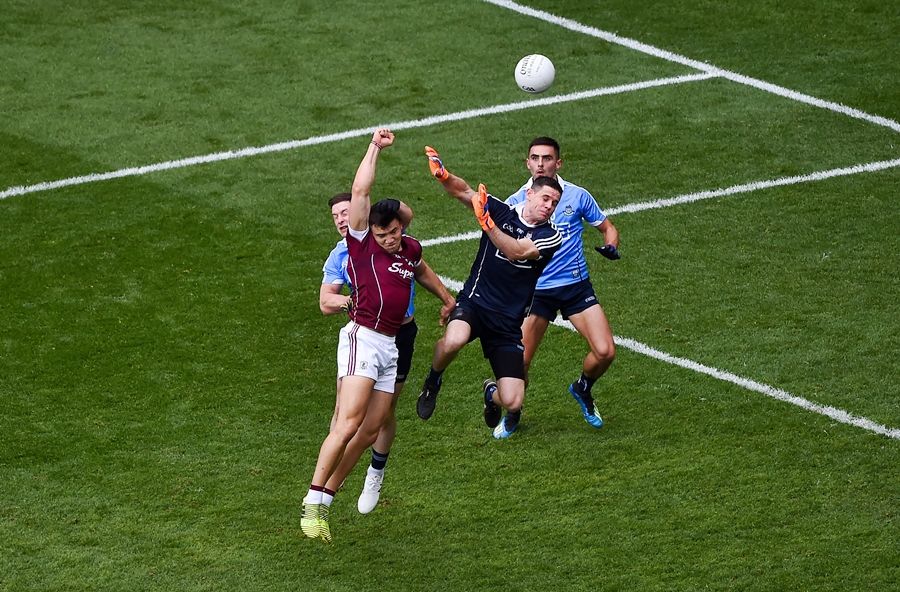![]()
The Galway forward was causing chaos in the first half of the semi-final against Dublin.
Damien Comer scored 1-1 in Galway’s last four exit to the Dubs but one suspects both he and his team left a slew of scores out there at Croke Park.
The Tribesmen clearly had Dublin rattled in the opening 35 minutes but, to Comer’s mind, left about 1-7 out there. Comer beat three Dublin men, including goalkeeper Stephen Cluxton, to a high ball to score and won his team a penalty soon after. Eamonn Brannigan missed that spot-kick and Dublin were soon stretching clear.
Instead of going in at the break a couple of points to the good, Galway trailed the reigning champions and fell away in the second half.
Comer spoke with Colm Parkinson about his team’s exit on The GAA Hour and (from 28:00 below) looked back with much regret on a the aerial tactic that Galway didn’t fully commit to.

“It wasn’t just Eamonn’s [penalty] that was a sickener,” says Comer. “Other chances came and you need to be taking them against Dublin.”
Dublin’s full backs like to mark from the front, and get out ahead of their man, so Galway took advantage with some smart diagonal balls that were causing some consternation. Former Comer’s goal, Ciarán Duggan put in a ball that had them in a flap and drew the rash error from Cluxton that led to the goal.
The only disappointment, for Comer and the Galway faithful, is that they did not put in a good few more balls like that. He says:
“It’s probably something I would have hoped for a bit more of, especially after getting the first ball we got it (from Duggan). It was a diagonal ball in and we got the goal from it.
“I suppose, I thought that we should have targeted it a bit more. We did target it in the second half but the balls were probably not as good and Dublin were expecting it. There were definitely two or three balls in the first half that were similar to the one we got the goal out of.
“We could have got more out of the and probably should have. Because when you get on top of a defender like that, with the diagonal ball, once then, even psychologically , their mind isn’t at rest and they don’t know whether to go man-on-man with you. And if they do go man-on-man with you, you can probably win a few balls out in front of them. It puts the element of doubt in their mind as well.”
Comer says he would have liked a few more deliveries similar to Duggan’s but ‘you don’t want to be hoofing balls in for the sake of it’.
Duggan’s delivery was more of a tracer than a steepler. Comer notes that some may have thought it was crazy to send the ball in when he was double-marked but such was the quality of the flat pass that the attacker had the advantage. Recreating that sort of ball, for Galway, was easier said than done.
“It’s about trying to get the balance right,” he adds, “but you definitely get the feeling it could have been worthwhile to get more in there.”





































